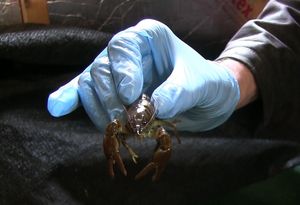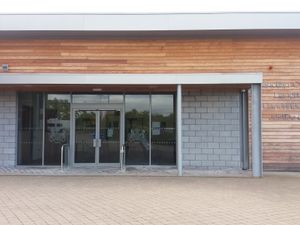Rare crayfish breed in the wild
It was feared that the white-claw crayfish could become extinct in mainland Britain in the next 20-30 years.

Now a Welsh conservation programme to save the highly endangered species is celebrating a major milestone after a captive-bred population has successfully spawned in the wild for the first time.
Experts from Natural Resources Wales’ released native white-clawed crayfish in a tributary of the river Irfon near Builth Wells between 2012 and 2014.
Now they have found first-generation wild crayfish in the area – demonstrating that a new population has been established.
Britain’s only native crayfish has declined by up to 80 per cent world-wide and have a less than a 10 per cent chance of surviving to adulthood in the wild, compared to around 80per cent in the hatchery.
More than 5,000 captive-reared crayfish have been released into carefully selected ‘ark’ sites in Wales.
The programme aims to offset the damage caused to the native crayfish population by the non-native American signal crayfish, climate change, habitat degradation and the impact of pollution on water quality.
Introduced for food production in the 1970s and 80s, the American crayfish carries a plague which affects only the white-clawed species.
Oliver Brown for Natural Resources Wales, said: “This is a great legacy for the Irfon Special Area of Conservation Project. Finding these wild-born offspring from our captive-reared programme proves that this could be a valuable tool in safeguarding the species for the future.
“The white-clawed crayfish is described as a keystone species, consuming detritus and almost acting as engineers in the aquatic environment.
“Their presence is an indicator of good water quality, as they are very sensitive to pollution, so their continued presence at the release sites is really encouraging.”





